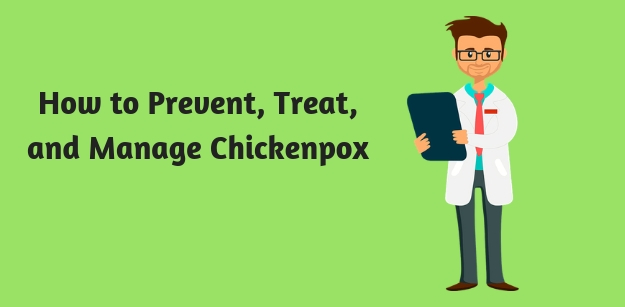Chickenpox is an infection symptomized by an itchy rash usually accompanied by fluid-filled blisters caused by the varicella-zoster virus. Even though it is widespread, particularly in children, it is easily preventable by undergoing vaccination. Getting chickenpox after vaccination is not common and the severity is very low.

Vaccination Tips
Vaccination for chickenpox is recommended for all children and adolescents besides adults who are already not immune. Only two doses of vaccination need to be administered with children receiving their first shot between the ages 12-15 months and the second between 4-6 years. Adolescents and adults can take doses one month apart. People who should not be vaccinated include those with severe allergic reactions, who have weakened immune systems, anyone who has recently received a transfusion of blood or plasma, those who have untreated tuberculosis, and anyone suffering from any disease. After vaccination, you need to avoid aspirin or other medicines containing salicylates due to the risk of Reye’s syndrome, a potentially fatal disease.
Symptoms
The symptoms of chickenpox usually manifest themselves two weeks after you have been infected, however, the time may vary from 10 days to three weeks. You will get an itchy rash that is accompanied by blisters containing fluid, along with fever, headache, fatigue, loss of appetite. If you have been vaccinated earlier, your symptoms will be milder and for a shorter duration.
Seeking Medical Help
Normally, if a child has already contracted chickenpox or has been vaccinated, the chances of contracting the disease the second time are slimmer. However, if you notice the fever lasting for more than four days or crossing 102°F with a rash that is warm, leaking pus or tender along with frequent vomiting, severe cough, confusion, abdominal pain, stiffness in the neck, etc. you should consult your doctor. The doctor will usually be able to diagnose chickenpox with the symptoms but may advise getting an Elisa test done for confirmation. The test kits are inexpensive and easily available, a leading supplier of Elisa kits to diagnostic laboratories worldwide.
According to https://www.cdc.gov, it is very important to seek medical attention if you suspect chickenpox infection in a child, who is too young to be vaccinated or not been vaccinated even though he is older than 12 years. People at more risk include those with a weakened immune system due to any medical treatment or underlying medical condition or if the woman is pregnant, not been vaccinated or had the disease as yet.
Limiting the Infection
Chickenpox is very contagious and it is easily spread through the air when an infected person exhales, sneezes, or coughs or if you make direct contact with the blisters that remain highly contagious until they dry out and develop scabs, a process that typically takes five to seven days. Even those who have been vaccinated but contract the infection can spread the infection.
Conclusion
Chickenpox is extremely contagious and causes a very itchy skin rash with pus-filled blisters. In healthy children, the infection is usually not very severe and can get over in about a week; however, those at more risk like people with weakened immune systems or pregnant women can experience more severity and risk. Chickenpox is easily preventable with the help of vaccines and its spread can be limited by reducing exposure and practicing good hygiene.



